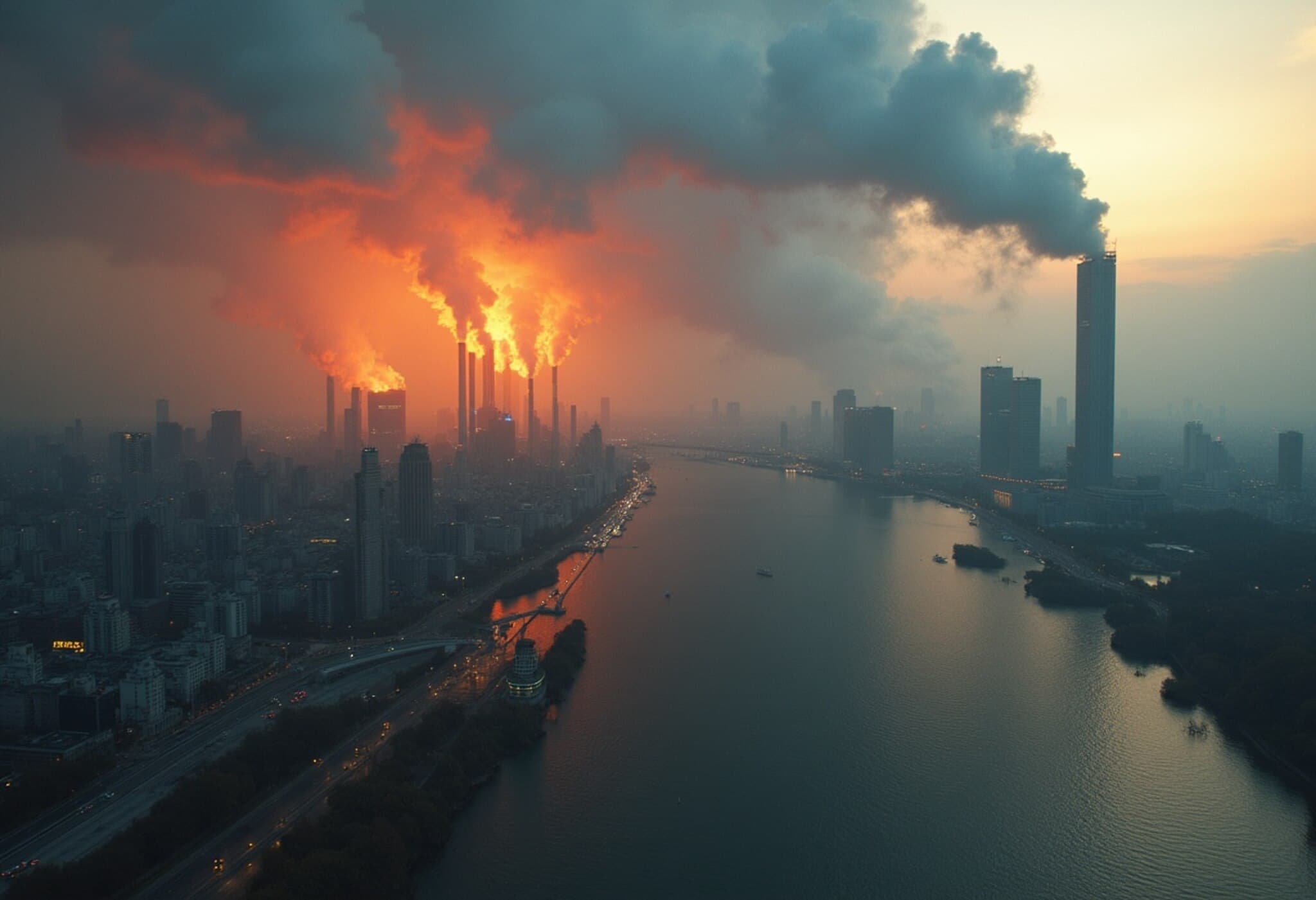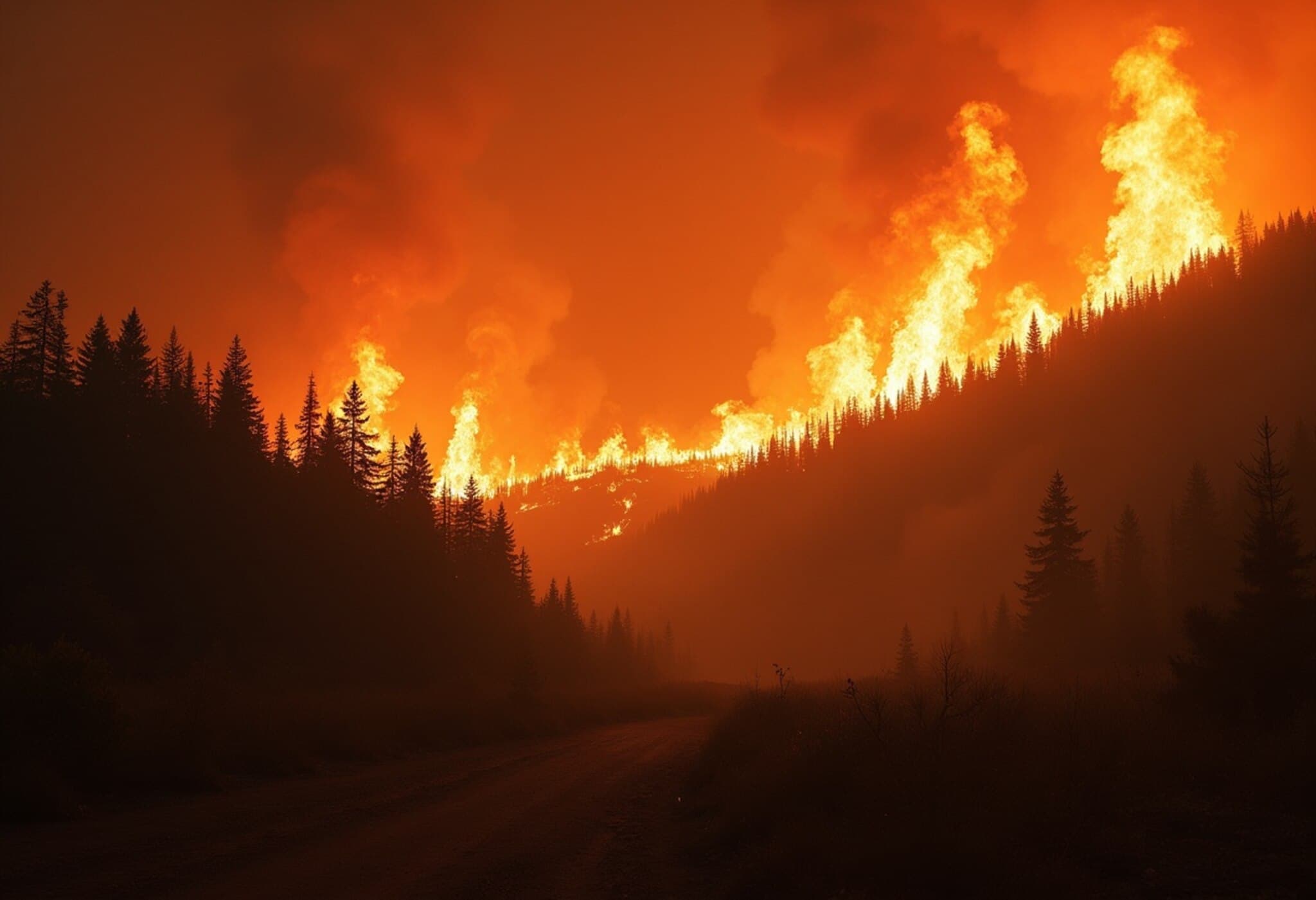International Court of Justice Sets Legal Precedent on Climate Responsibility
In a landmark advisory ruling on July 24, 2025, the International Court of Justice (ICJ) in The Hague declared that countries bear a legal obligation under international law to curb greenhouse gas emissions. The court emphasized that nations failing to meet these obligations could be held liable for compensation, especially to vulnerable states disproportionately impacted by climate change such as small island nations.
Background: The UN’s Request for Advisory Opinion
The advisory opinion stems from a request made by the United Nations General Assembly seeking clarity on the scope of nations’ climate responsibilities under existing international treaties and conventions. The ICJ examined treaties including the United Nations Framework Convention on Climate Change (UNFCCC), the 2015 Paris Agreement, the UN Convention on the Law of the Sea, the Montreal Protocol, the Convention on Biological Diversity, and others tied to environmental protection and climate resilience.
While the Court’s ruling is advisory and thus not legally binding, it carries significant moral and legal weight — setting a critical precedent for ongoing global climate litigation and heightening expectations for state accountability.
Key Findings: Obligations, Leadership, and Liability
- Universal Commitment: All countries party to the UNFCCC and Paris Agreement must take concrete, effective measures to reduce emissions and adapt to climate impacts.
- Enhanced Responsibilities for Developed Nations: Wealthier countries hold an additional burden to lead climate efforts, given their historical emissions and greater capabilities.
- International Liability: Failure to fulfill these obligations risks constituting an "internationally wrongful act," which may trigger compensation claims, particularly benefiting nations most harmed by climate crises.
Broader Impact: Catalyzing Climate Justice Worldwide
Environmental advocates hailed the ICJ’s advisory opinion as a turning point. Harjeet Singh, climate activist and Founding Director of Satat Sampada Climate Foundation, remarked, "This opinion signals an end to the impunity that polluters and non-compliant states have enjoyed for decades. It reinforces principles of justice and sovereignty, empowering vulnerable communities to seek redress.”
Across the globe, thousands of climate lawsuits have emerged over the past decade, mobilizing courts as arenas for environmental accountability when political action lags. The ICJ’s stance serves to embolden these efforts, lending international legal credibility to claims against states and corporations failing to meet their climate commitments.
US and Global Legal Context
Though the ruling does not directly alter domestic laws, it influences the broader legal ecosystem by framing climate change as a matter of international responsibility and potential liability. In the United States, where climate litigation against both governmental bodies and corporate polluters is intensifying, this advisory opinion could inform judicial approaches to environmental duties under both federal and international law.
Moreover, the ruling underscores the complex interlinkages between environmental regimes — from ozone protection to biodiversity — reminding policymakers that climate action requires a comprehensive approach, not piecemeal efforts.
Looking Ahead: Challenges and Opportunities
Despite the ruling’s persuasive power, enforcement mechanisms at the international level remain limited. Critics warn about the potential gaps between legal pronouncements and real-world action, as many countries continue to grapple with economic and political hurdles in scaling up climate commitments.
Nevertheless, the advisory opinion elevates climate responsibility into the realm of international law in a more explicit way than ever before. It invites a re-examination of sovereignty, equity, and justice in the climate crisis context, urging global cooperation grounded in shared but differentiated responsibilities.
What This Means For Vulnerable Nations
Small island developing states and other high-risk regions have long sounded alarms about existential threats from rising seas and worsening extreme weather. This ruling offers them a stronger legal foundation to demand support, compensation, and meaningful climate mitigation from major emitters. It adds momentum to calls for mechanisms that facilitate financial transfers and technology sharing to bolster their resilience.
Editor’s Note
The ICJ’s advisory opinion marks a historic juncture, articulating for the first time a clear legal framework that holds countries accountable for climate inaction on a global stage. While it stops short of enforceability, its influence is already rippling through courts, diplomatic negotiations, and civil society movements worldwide.
Questions remain: How will governments translate this ruling into concrete policy steps? Can international bodies strengthen enforcement? Will compensation mechanisms be operationalized to support the most vulnerable?
As climate litigation proliferates and global climate diplomacy intensifies, the ICJ has illuminated a path towards legal clarity and moral responsibility — a beacon urging us to act decisively for our planet’s future.



















